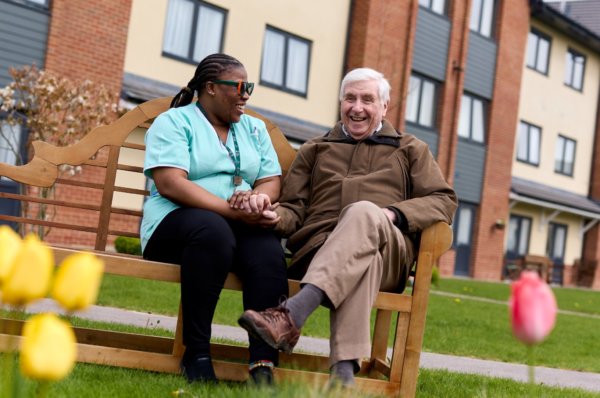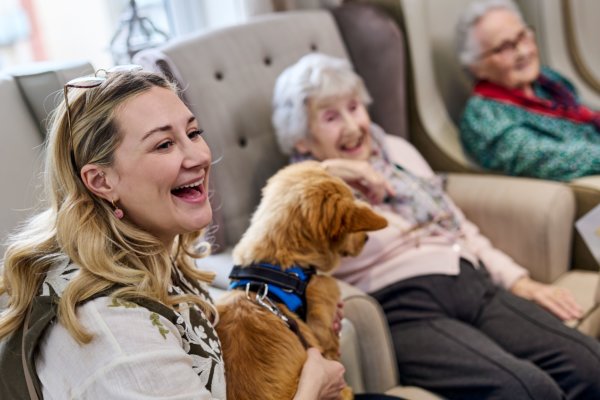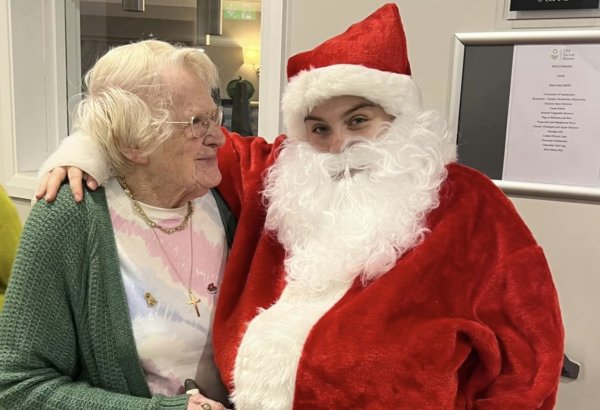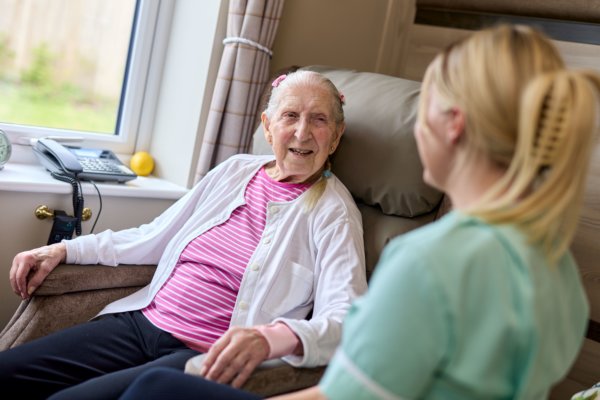5 Ways to Avoid the Effects of Loneliness on your Loved One

Now in our third national lockdown, it is almost a year that your loved ones have been isolating in some manner. This has meant an absence of the usual events your loved ones used to enjoy, be they ‘knit and natter’, cards or just visiting day centres, often the lifeblood of their social interaction.
According to the NHS, isolation can have a serious effect on people’s health. For those that need care, it is likely their requirements have changed over the past year, as they typically do over time. However, some conditions, such as dementia, will have been made worse by the isolation, causing increased worry for relatives about how they will cope.
So, what should we be thinking about? We do not intend to cover every topic here, but rather address some of the more important ones.
1. Keeping in Contact
Regular calls and, if possible, video calls, are important. An increased frequency of calls, even if they are short, can be crucial to helping break up periods of loneliness.
Organisations such as Independent Age (0800 319 6789) and Age UK (0800 055 6112) provide a free service where a volunteer who enjoys talking to elderly people can call your loved one every week or fortnight.
Arranging for a friendly neighbour to just knock on the door and check how they are can help reduce isolation, bringing comfort and reassurance to you and our loved one.
2. Nutrition and Hydration
It is important they maintain a healthy, balanced diet, and keep hydrated. However, ensuring your loved one is eating, and sometimes even cooking, can be difficult.
If they are badly nourished or dehydrated, they may be more susceptible to becoming ill as their immune system deteriorates. This can lead to a greater chance of falls and other health issues.
Signs to look out for include headaches, constipation, muscle cramps, dry mouth and tongue, and sleepiness or lethargy.
3. Medication and Healthcare
How your loved one gets to the GP or hospital if there is a problem also needs to be considered. Phone numbers for taxis or the Royal Voluntary Service (0330 555 0310) should be kept at hand for non-emergency visits as it is important to have a plan in place in case you are not able to be there to help.
As well as taxi numbers, it is important your loved one keeps a list of other important telephone numbers such as the GP, pharmacy, plumber, and electrician, as well as trusty neighbours and the corner shop.
4. Keeping Busy and Mobile
During lockdown it can be easy for your loved one to start doing fewer activities and watching more TV. Encouraging reading, arts and crafts or other hobbies is very important to keep both mind and body active.
Showing your loved one some physical exercises, whether just lifting their arms in the chair or walking around the room, can also be hugely beneficial to them.
5. Living in a Care Home
Making the decision to move into a care home to get some extra help and peace of mind is not always easy. However, not all care homes are equal. Some now offer hotel-type service and have a homely feel, together with well trained, compassionate staff, lots of activities and cuisine like top quality restaurants.
A care home can therefore remove many of the worries for you and your loved one, whether it be isolation or the risk of an accident or fall.
The headline cost of living in a care home is often not significantly different to that of home care (visits by a carer to your own home). However, when you factor in the usual costs of living at home, such as food, utilities and maintenance, the cost of living in a high-quality care home might pleasantly surprise you.
At Old Sarum Manor, we offer the highest standards of 24-hour residential, dementia and respite care in our brand new, luxury care home. Together with our brilliant staff, this offers a safe and enjoyable experience for our residents, whilst maintaining their sense of dignity and independence.
To support resident well-being and keep them in contact with their relatives, we facilitate safe visiting in our beautifully designed garden room visiting pod. We also encourage and help our residents to do video calls with their loved ones using our iPads.
Do not worry about your loved one being lonely.
Please contact our friendly team on 01722 445 490 to discuss how we can help put your mind at ease during this difficult time.



